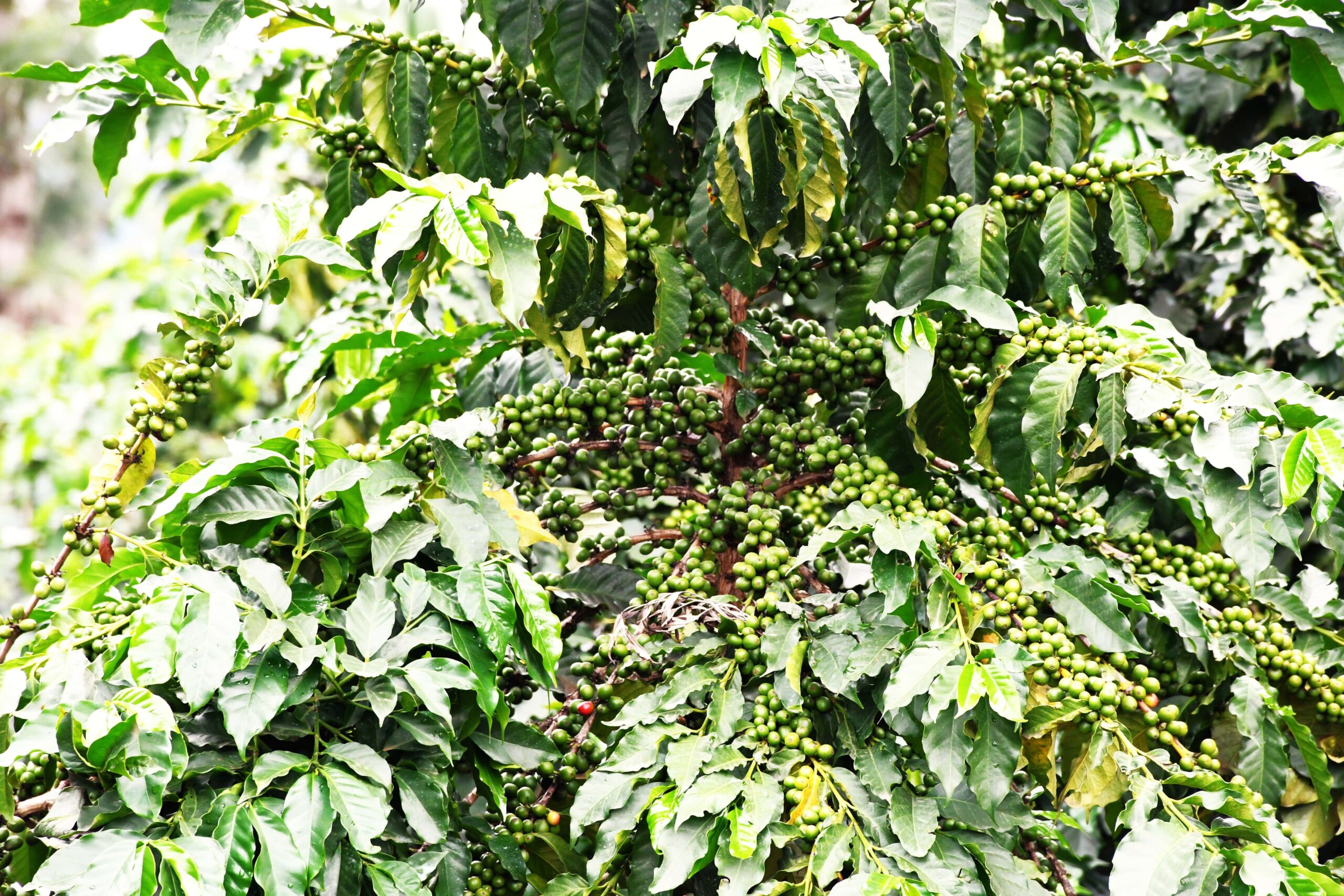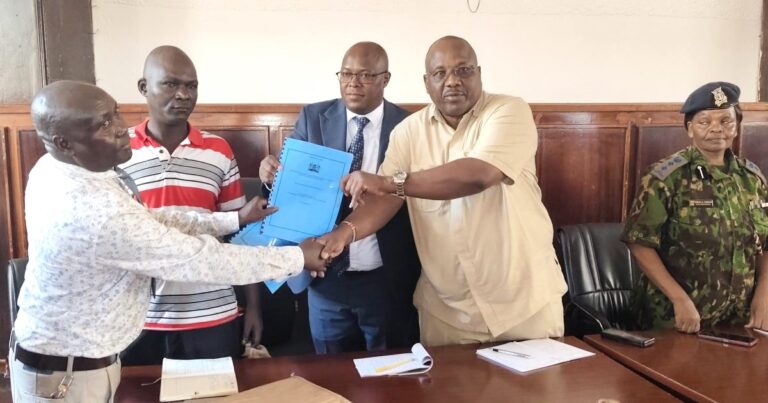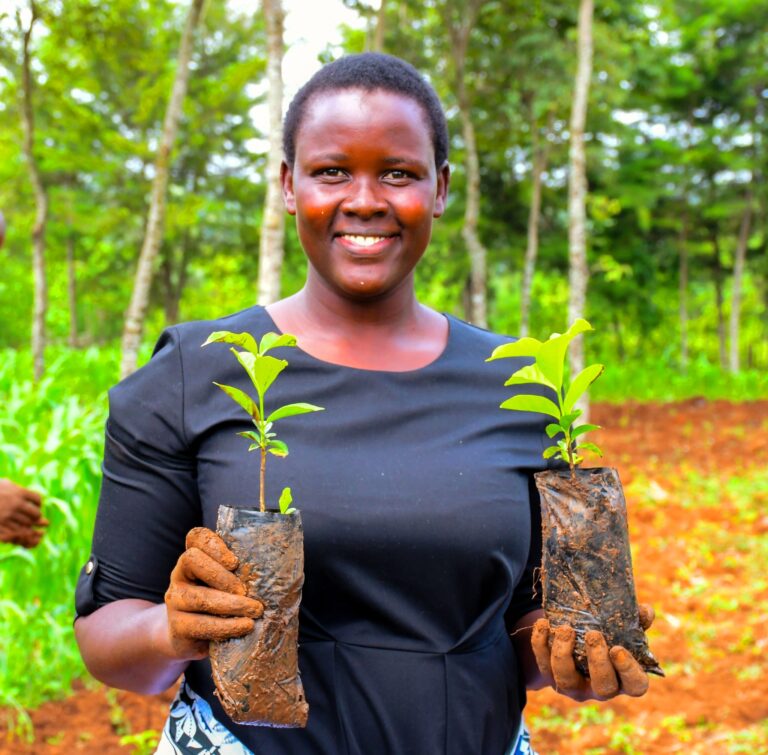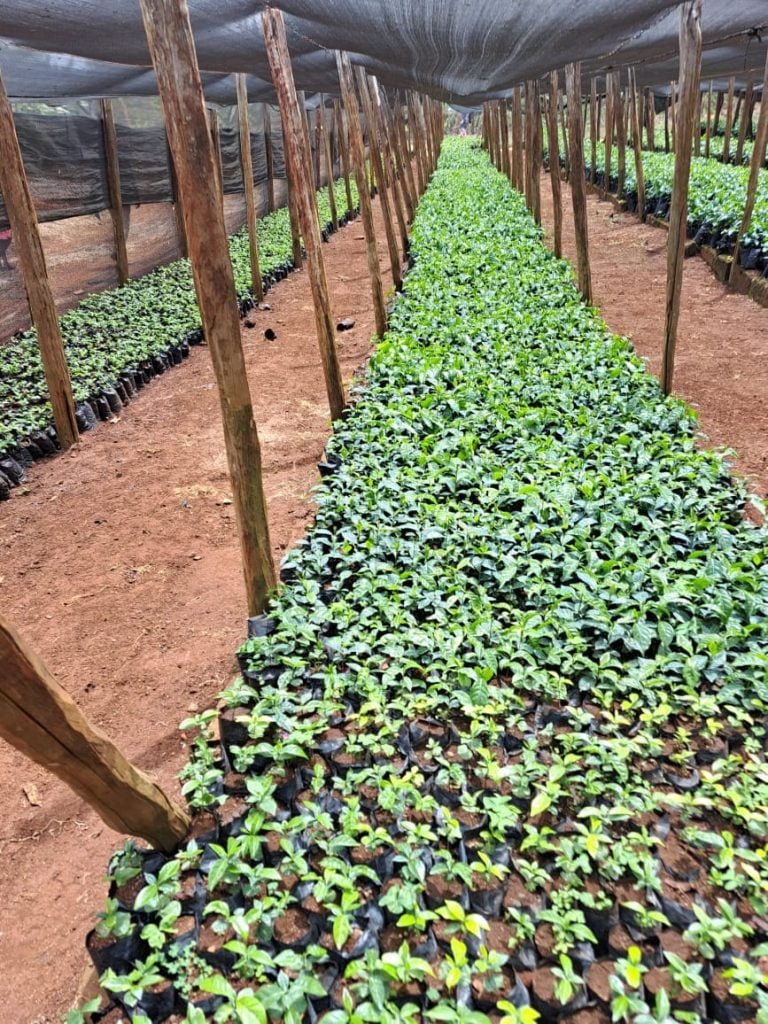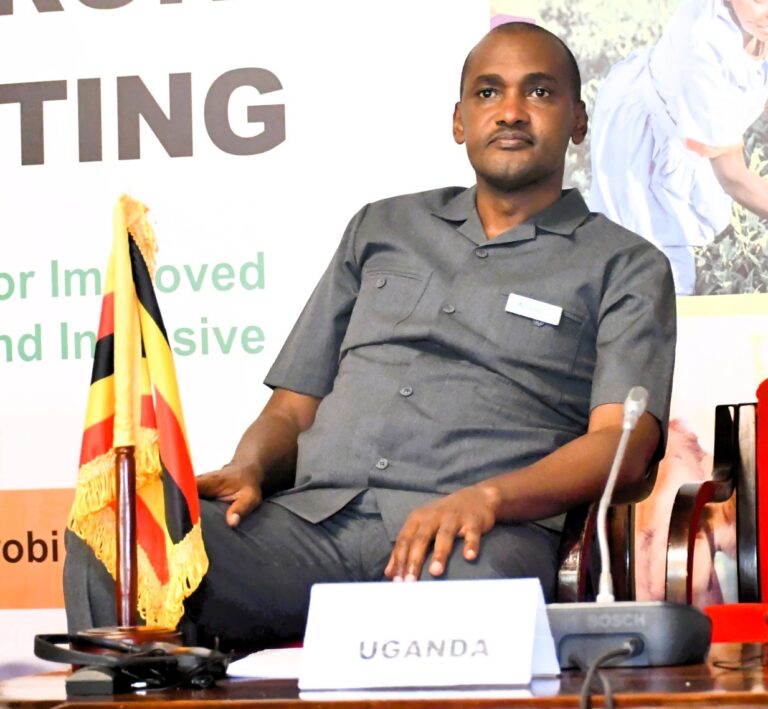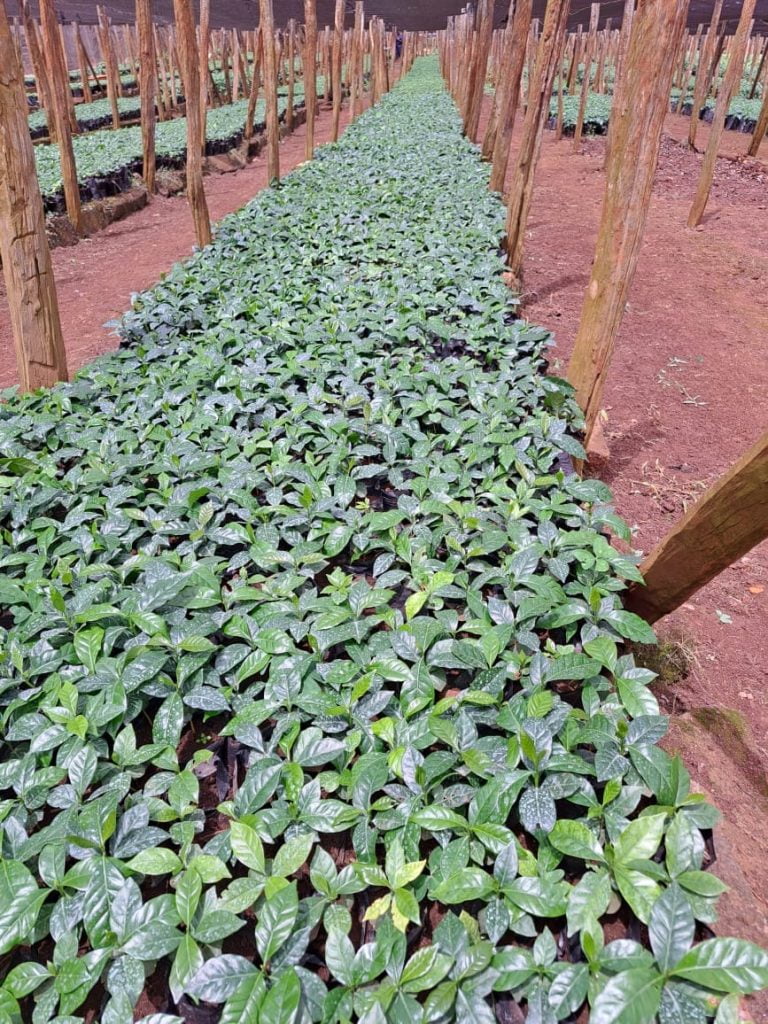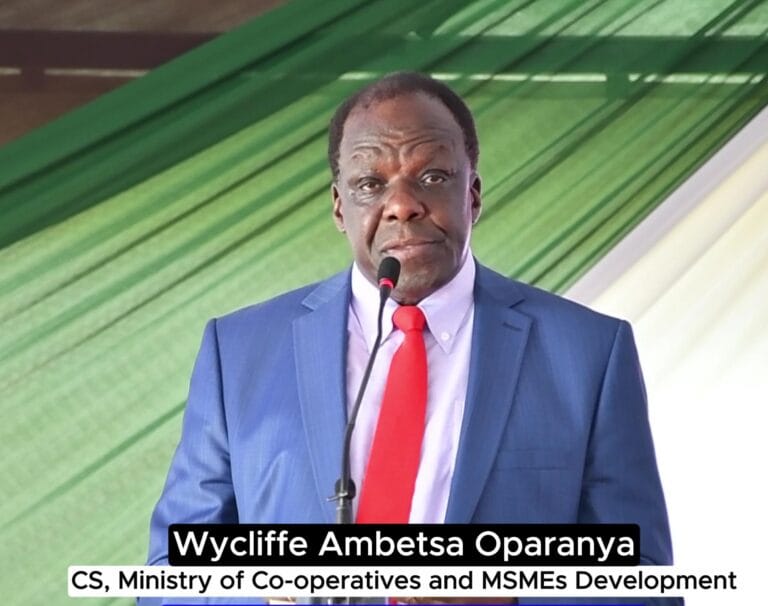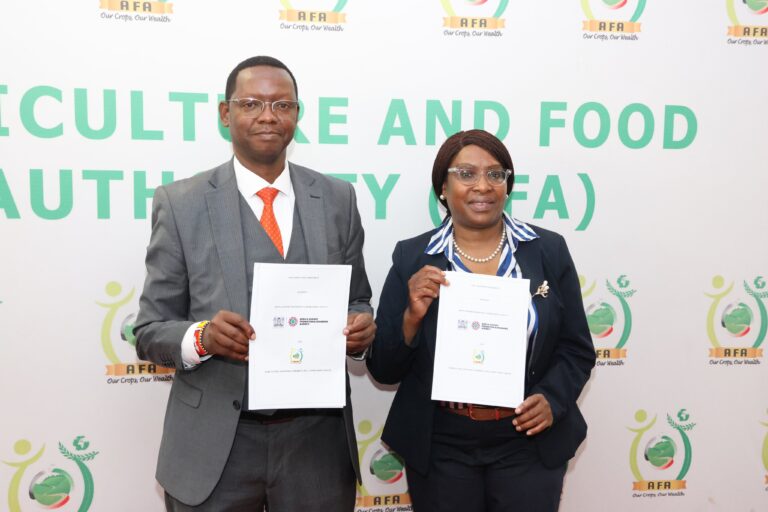By Kimuri Mwangi
Through revamped institutions, digitized financing, and targeted farmer support, Kenya is laying the groundwork for a sustainable coffee resurgence.
For decades, coffee has been Kenya’s “black gold,” famed for its rich aroma and premium quality that fetches top prices in global markets. Yet, behind this prestige lies a stark reality: declining production and diminishing farmer profits. The government is now racing to reverse the trend through sweeping reforms, investments, and institutional strengthening under the Coffee Revitalization Program.
Speaking during the East African Coffee Markets 2025 Conference held at the Visa Oshwal Centre in Nairobi, Henry Kinyua, Presidential Advisor for Crops and Value Chains, underscored coffee’s central place in the Bottom-Up Economic Transformation Agenda (BETA).
“In agriculture, there were three pillars. Pillar number one is increased food security. Pillar number two is reducing the volume and value of imports. Pillar number three was to increase the value and volume of exports. And coffee squarely lands in pillar number three,” he said.
Kinyua noted that President William Ruto had set an ambitious target to see coffee exports increase from the current 50,000 metric tonnes to 150,000 metric tonnes, a goal he said is achievable.
“We have the bushes that can do that. Currently, in Kenya, we have between 160 to about 200 million coffee bushes producing, on average, about two kilos per bush. Here in Kirinyaga County, which has been one of the most progressive in increasing productivity, they are on average about six. If the entire country just moved the existing coffee bushes from two to about six on average, we would quickly move from 50,000 to 150,000 metric tonnes of clean coffee. However, you need to look at the reason why those farmers are not doing that,” he said.
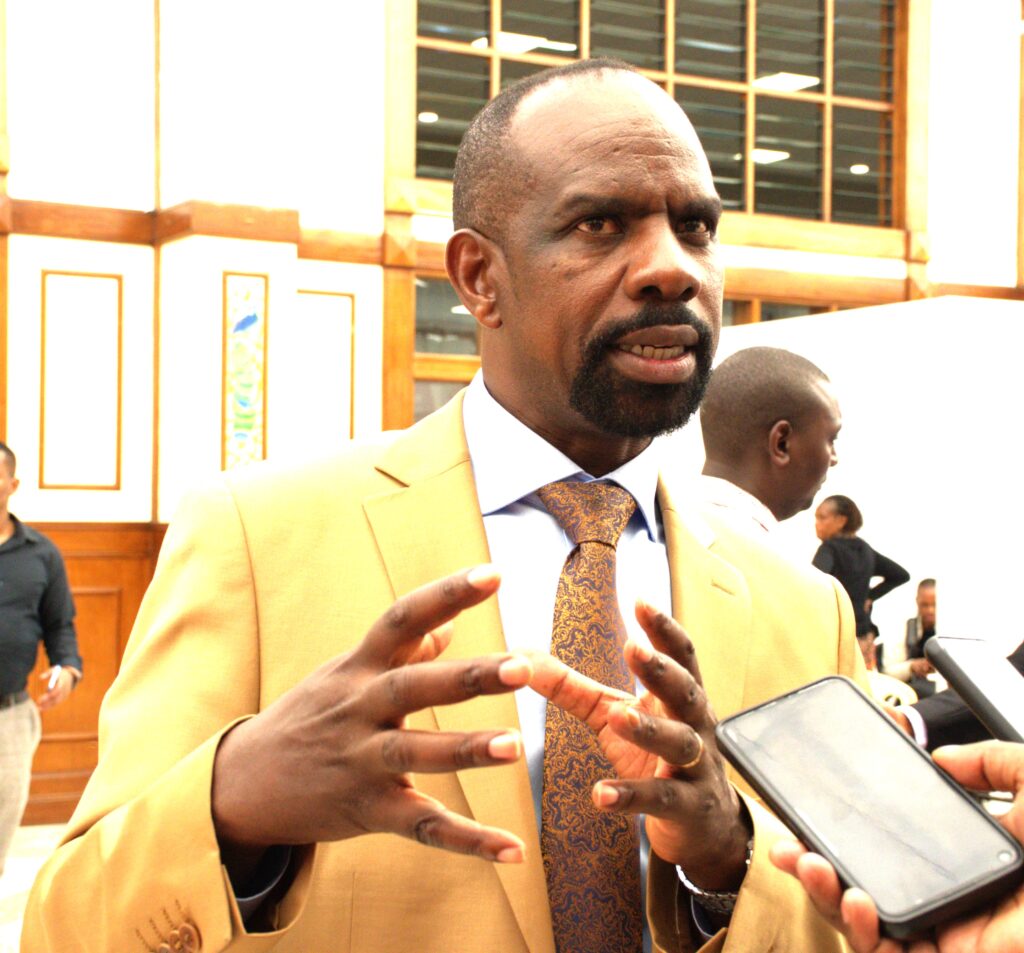
He added that the government was addressing both productivity and production challenges by facilitating access to quality seedlings and expanding coffee growing into new counties.
Kinyua emphasized that the administration had cleared all policy and legal hurdles stalling the sector, implementing the Coffee General Regulations 2019 and the Capital Markets Authority Nairobi Coffee Exchange Regulations 2020. “These two regulations were passed in 2019 and 2020, but they had not been implemented. And those of us who work in policy, we normally say a good policy, which has not been consistently implemented, is worse than a bad policy consistently implemented, because the government needs to provide consistent policy implementation. As a farmer from your own farm, you can be able to grow and export without any hindrance. The law now allows that.”
To open up the sector, he said, the government made it easier for players to enter various stages of the coffee value chain. “Before, to be a dealer used to be about a million dollars. Now, it’s just like a million shillings,” he said, adding that the government’s role is to facilitate business rather than run it.
According to Kinyua, institutional reforms are a key focus. “The coffee bill will create a Coffee Board, an institution that will be in charge of the coffee. It also creates an opportunity to strengthen the Coffee Research Institute and all that,” he said.

Daniel Chemno, the Chairman of the New Kenya Planters Cooperative Union (KPCU), painted a picture of decline and renewal. “For the last 30 years, coffee production in this country has been on a downward spiral. In 1988, when we were at our highest, we were doing 128,000 metric tonnes. Today, we are doing about 50,000 metric tonnes,” he said.
Chemno noted that the government’s ongoing reforms were beginning to bear fruit. “The government has initiated several reforms that are bringing change to the sector,” he said.
To cushion farmers, Chemno said, when farmers harvest their cherry and take it to the factory, they can access KSh 40 per kilo from the Coffee Cherry Fund managed by New KPCU, and once the money is given, the security is the coffee delivered. He added that the government is also supplying inputs at subsidised rates
Chemno said extension services, which collapsed, were being revived through the deployment of two trained youth in every coffee-growing ward. They are being trained at the Coffee Research Institute, Dedan Kimathi University and in other institutions. The two will be moving around the wards advising coffee farmers. The New KPCU, he added, had already hired Field Officers who will be supervising the youth. “You will expect that there will be a very strong army of coffee experts who will be assisting our farmers,” he said.
The government has also allocated KSh 500 million for a programme to produce 20 million tissue culture coffee seedlings annually, working with 10 universities and the Coffee Research Institute to ensure the availability of quality seedlings, which has been a challenge across coffee-growing regions.

Chemno added that coffee growing is expanding to new regions, including Marsabit, Narok, and Nyandarua County, where coffee is being grown in Ndaragwa and Oljororok Sub-counties. “North Rift has been known to be a cereal-growing region, but now they have entered the coffee industry,” he opined.
So far, KSh 9 billion has been distributed under the Coffee Cherry Fund with “100% recovery,” while the Direct Settlement System (DSS), he said, ensures prompt payment.
Reforms also include governance changes. “There is also a bill on governance that will limit the term of cooperative officials to two terms, to provide a better opportunity for new blood,” he said. He expressed confidence that “with the support the government is giving, we are sure that Kenya will rebound and take its position in the high table of global coffee negotiation.”
Nancy Cheruiyot, CEO and Managing Trustee of the Commodities Fund, highlighted the government’s efforts to finance coffee revival. “Commodities Fund is a government agency that was created to provide accessible and affordable lines of credit to the coffee sub-sector,” she said.
She explained that loans are provided right from establishment, up to the markets and up to the trade financing, saying the “interest rates are below 10% with the highest loan being 7.5%.”
Cheruiyot said the Direct Settlement System (DSS) has been a “game-changer” in coffee financing. “Now, anybody, so long as you sell your coffee at the Nairobi Coffee Exchange, you can come for a facility, and we will finance you without asking you to give us any security. The coffee is the security itself,” she said.
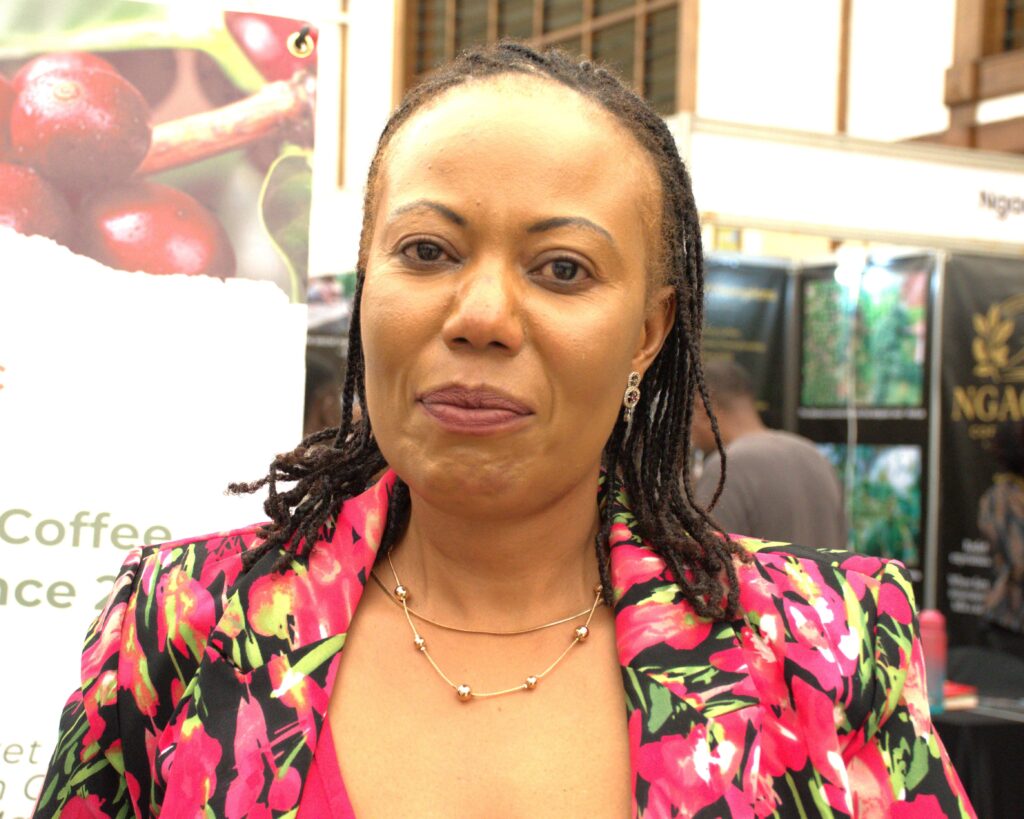
She added that the Fund offers special terms to encourage inclusivity: “We charge women just 3% if you are a woman farmer, and also the youth we are working with.”
Cheruiyot said the Fund is also supporting the government’s efforts to expand coffee growing in non-traditional regions. “We have realised there is a lot of demand for coffee seed and seedlings, especially from the counties West of the Rift, which were not traditionally coffee-growing counties. These include Kericho, Bomet, Uasin Gishu, and Narok,” she said. New coffee zones are also emerging in the lake region and coastal counties for the robusta variety, she added, which would make “80% of the country” coffee-growing.
The Fund expects KSh 5 billion from the Exchequer over the next three years to support the coffee value chain. She said the DSS had reduced non-performing loans from 40% by ensuring the money is recovered at source.
To speed up access to finance, the Fund has introduced a credit line system allowing cooperatives to access approved funds on demand. “When cooperatives borrow, they don’t have to borrow, and then we go through the appraisal process for everything. So right now, we appraise every cooperative once in three years. And then we say, according to our appraisal, you will need a total of, let’s say, KShs 30 million to cover fertilizer, inputs, and the like. But now you have access to those funds in the system, whatever you need, at that point, you need. We will just disperse, because the board would have approved for three years. So that’s something we are working on to ensure that the turnaround time is immediate,” she opined.
Cheruiyot also talked about plans to digitize the sector. “We are working with a partner to digitize all the records, all the cherry deliveries in counties, and then we follow the cherry all the way to the Nairobi Coffee Exchange. We have now digitized about 45 cooperatives in Kericho County and some in Nandi. Next week, we start in Mount Elgon. We are working with unions so that we are able to talk to cooperatives. Once all this is done, everything will be digitized. When they ask for a loan, I don’t have to go and say, Oh, give me your records, how many kilos of cherries did you have last year, because we will link our system with every county system. And we are linking everything, including the EUDR.”
As Kenya renews its bid to reclaim its place among the world’s top coffee producers, the government’s reforms, spanning policy, finance, and research, are injecting fresh hope into the sector.


